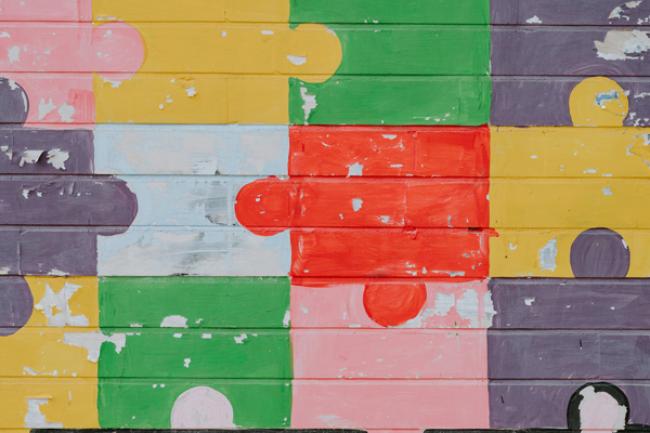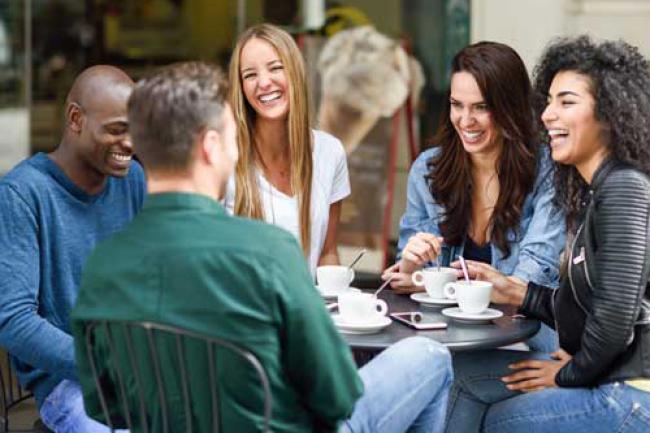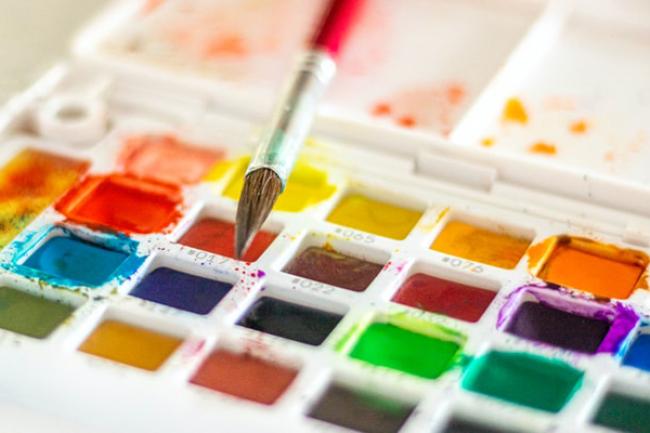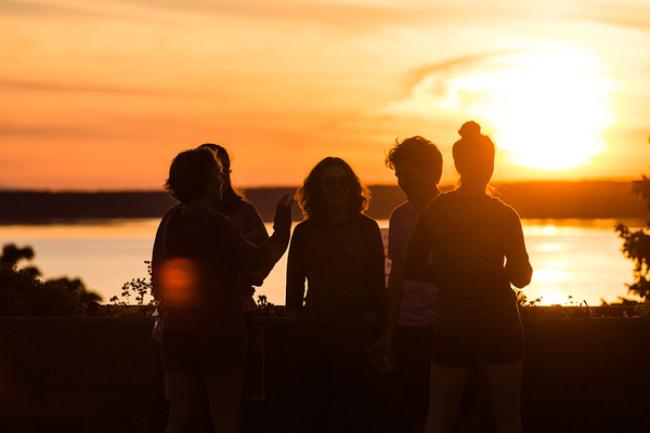CWC Groups
Group Support
Our quarterly groups are designed to facilitate connection, promote personal growth and self-understanding, and build resilience.
If you're interested in joining a group, call 360-650-3164 to schedule a drop-in phone consultation with a counselor.
Not finding the group you are looking for?
Scroll down to the bottom of the page for a list of community-based and virtual groups.
Closed vs. Open Groups
Most of our groups are closed groups, in which each weekly session builds on the previous one. Closed groups require a commitment to attend every week of the quarter. Please consider if this is a reasonable commitment for you.
Questions?
If you need any more information, please email Gabrielle Hope-Foucault, LMHC, Coordinator of Groups Program.
We also maintain a list of mental health links and downloads that may provide information and/or support to better understand and cope with a variety of mental health topics.
Family Ties

A support group for students of all identities impacted by family trauma who desire information about the impact of trauma and would like to improve self-compassion and self-care while maintaining connection with others.
Facilitator: Gabrielle Hope-Foucalt, MA, LMHC
Build Your Social Confidence

This group is for students that experience fear, anxiety, and discomfort in social situations that contribute to isolation and feelings of loneliness and embarrassment. Learn and practice new skills to reduce social anxiety and strategies to increase social engagement.
Facilitator: CJ Swanlund, PsyD
Understanding Self and Others

Students of all identities can learn more about themselves, their relationships, and connecting with others in an experiential setting for the purpose of enhancing self-awareness and increasing satisfaction within relationships.
Facilitators: Gabrielle Hope-Foucault, LMHC
Divergent Minds 2.0

Have you participated in Divergent Minds group previously and feel like you’re missing the social connection? DM 2.0 is here! This group is for students who’ve been in Divergent Minds group at the Counseling and Wellness Center any time in the past and would like to connect socially with other divergent thinkers. We’ll have some structured time at the beginning to talk about a topic chosen by group members, then some free time to just hang out together in a supportive atmosphere. This group will be a drop in community space, so no need to sign up or check in, just show up when you can!
Facilitators: Calleaghn Kinnamon, PsyD and Sarah Kapostasy, MA
Art-Based Survivor Support Group

An advocate-led confidential support group for survivors of violence that is available to and affirming of people of all sexual orientations and gender identities. This group aims to foster connections among survivors of relationship abuse and sexual violence and focuses on supporting one another in healing. Participants will engage in art-based activities and facilitated dialogue. All supplies are provided.
This group does not require a 30-minute phone screening appointment. To enroll in this group, please contact Deidre Evans by email or phone.
Facilitator: Deidre Evans, MSW
Lost and Found

A support group for LGBTQ+ students whose family dynamics are impacted by their gender and/or sexuality. Students gain psychoeducation around family dynamics and how it impacts them and their relationships, and ways to increase self compassion and self care. Examples of complicated family dynamics include: controlling parental dynamics, unsupportive parents, and inability to come out due to family.
Facilitator: Sanjana Satishkumar, MS, LMHCA
Staying Afloat

Develop and practice healthier and more effective coping skills for navigating difficult emotions and interpersonal relationships in a supportive space.
Facilitator: Ruby Casiano, PhD
Living with Loss

A space for students coping with the death or imminent death of a significant person to express emotion, share experiences related to bereavement, and receive and provide support.
Facilitator: Holly Weber, PsyD
Divergent Minds

Existing within systems that are catered to neurotypical ways of thinking can be exhausting and isolating for neurodivergent minds. This support group aims to provide a neurodivergent positive space for students who have ADHD and/or exist on the Autism Spectrum to share common experiences, seek support, and build connections.
Requests for specific accommodations are welcome at any time, although submitting a request via email prior to the meeting is preferred.
Facilitators: Calleaghn Kinnamon, PsyD and Sarah Kapostasy, MA
Befriend Your Feelings

A support group for students who experience symptoms of depression and anxiety. This group aims to provide a space for students to share common experiences, seek support, and foster connection. Students will also learn about self-compassion and emotion resilience.
Facilitator: Nikki Cassidy, PsyD
Winter & Spring Quarter: Build Your Social Confidence 2.0

Calling all Build Your Social Confidence (BYSC) Group Alums! Join us to continue practicing your BYSC skills to gain confidence in managing unhelpful thoughts and discomfort in this open, once-per-quarter group with folks who have gone through the BYSC group program. We will tailor the quarterly meeting activities and discussions to the needs of the folks who show up!
Facilitator: CJ Swanlund, PsyD
Spring Quarter: After Silence

This is a support group for students who have experienced sexual assault or childhood sexual abuse. Members of this group can expect some discussions on trauma-informed coping and information about trauma responses followed by opportunity for group members to support one another. Some topics of discussion will likely include boundary-setting, healthy relationship dynamics, self-compassion, shame, and rebuilding trust. This group is available to and affirming of students of all sexual and gender identities.
Facilitators: Nikki Cassidy, PsyD & Deidre Evans, MSW
Group Support
Every quarter, the Counseling and Wellness Center offers a variety of different groups. In our group settings, you can count on the expertise of the counselors who facilitate the group, and you can also get to know other students who are experiencing similar issues as you. Our groups are designed to facilitate connection, promote personal growth and self-understanding, and build resilience. A common theme for group participants is wanting to learn how to change thinking, feelings, and/or behavior to feel better about themselves and cope more effectively with life. Now more than ever, it’s so important that we find ways to connect with others and remind ourselves that we’re not alone.
Interested in Joining?
If interested in joining a group, call 360-650-3164 to schedule a drop-in phone consultation with a counselor who will recommend whether the group could be of benefit to you. Most groups start near the beginning of the quarter, so be sure you call within the first few weeks of classes. If a group has already started, you can ask to be placed on a waiting list for next quarter. Please note our groups require a group screen appointment to join following a drop-in appointment.
Support Group
Members in similar circumstances can share in an open and unedited fashion. Support groups allow members to find self-acceptance as they are; these groups validate and normalize each person’s experience. They are a place for encouragement from other group members and group facilitators.
Skills Group
Group members have the opportunity to learn and develop their abilities in a particular realm of mental health. These groups are geared toward empowering students to better cope and care for themselves and are often experiential.
Process Group
The power of process groups lies in the unique opportunity to receive multiple perspectives, support, and feedback from other individuals in a safe and confidential environment. Process groups are typically 5-10 members and are generally unstructured; the primary focus of therapy is on the interactions among group members. Discussion flows according to what members would like to talk about — the group leaders do not, for the most part, assign topics for discussion. Members are encouraged to give support and feedback to others while also working with their own reactions to feedback that is received. These interactions can provide group members an opportunity to deepen their self-awareness and to learn how they relate with others.
Not finding the group you are looking for? The following are several community-based and virtual therapy groups that you might find helpful:
NAMI (National Alliance on Mental Illness) Whatcom Groups
Liberating Jasper Support Groups
Eating Disorders Support
Eating Disorders Hope
List of online eating disorder support groups.
Gurze Salucore Eating Disorders Resource Catalog
List of eating disorder support groups in WA.
Eating Disorders Resource Center
List of free online eating disorder and body image support groups.
National Eating Disorders Association
List of NEDA Network virtual support groups.
King Health Associates
Eating disorder online group with Kendra Corey, LMHC, and ED specialist. Email intakes@kinghealthassoc.com for more information.
The Eating Disorder Foundation
Calendar of virtual eating disorder support groups.
Eating Recovery Center Support Groups
Offering free virtual groups for college students.
National Alliance for Eating Disorders
Free, therapist-led support groups for eating disorders
Survivor Support
DVSAS of Whatcom County
List of support groups for survivors of domestic violence and sexual assault.
Survivors of Incest Anonymous
Support for survivors of childhood sexual abuse.
Grief & Loss Support